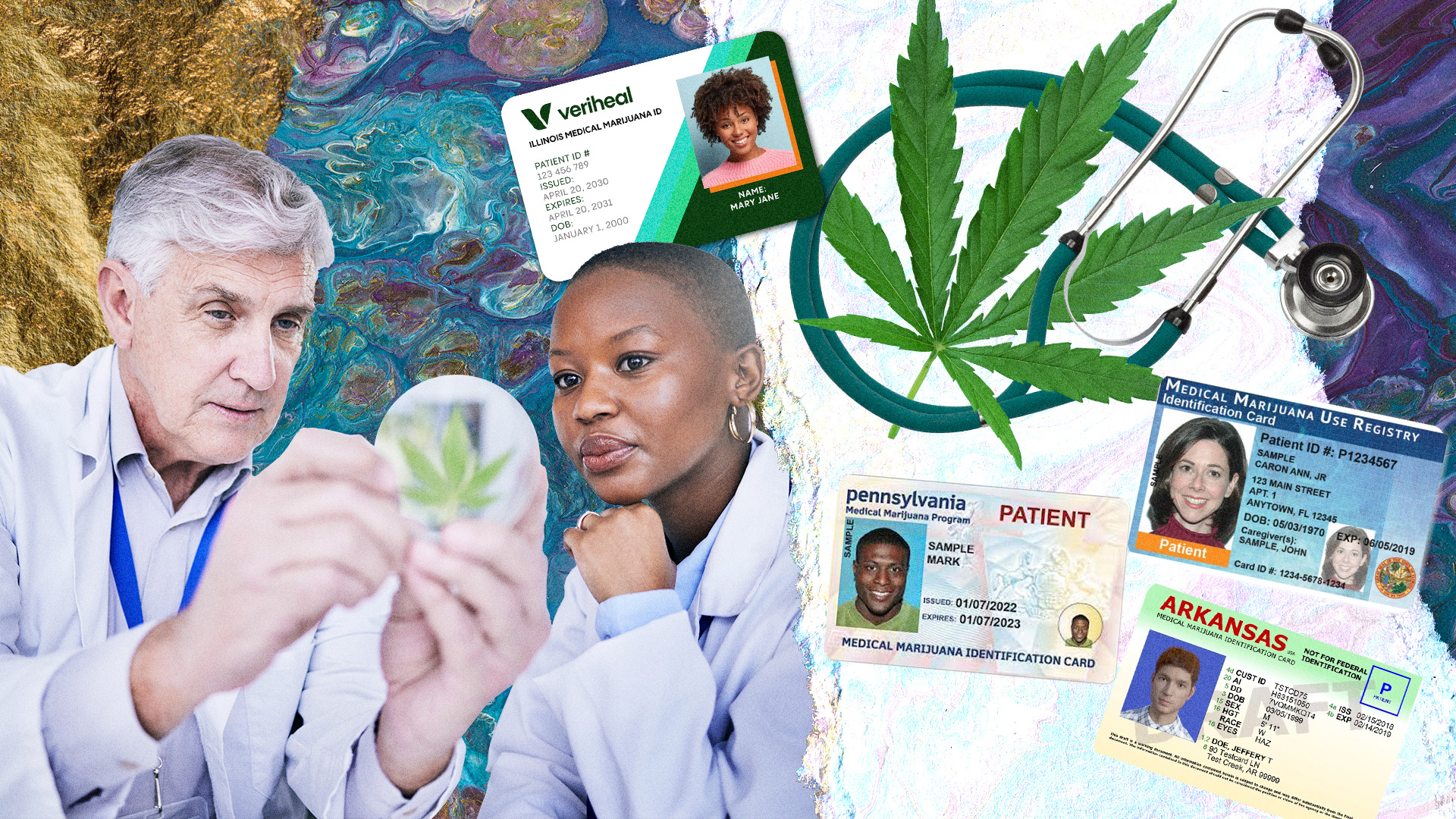In an era where cannabis acceptance continues to grow, healthcare professionals, especially nurses, face several legal and ethical considerations. The crux of the issue lies in the federal Schedule I status of marijuana, set against its legalization for medical (or recreational) use in numerous states.
The result is many ‘blurred lines’ and confusion for many, leading to critical questions about the implications for nurses with medical marijuana cards. Let’s take a closer look at this growing issue and clarify the legal obstacles and professional expectations facing nurses today.
Can Nurses Have Medical Marijuana Cards?
So, can nurses really have medical marijuana cards? The answer is yes, although with a few caveats. Currently, the federal government classifies cannabis as a Schedule I substance, meaning it is deemed to have a high potential for abuse and no accepted medical use. (Although several peer-reviewed studies have shown numerous medical benefits of cannabis use). This classification places cannabis in a challenging position for healthcare professionals whose licensure and practice are tightly regulated.
Nevertheless, despite this federal status, many individual states have forged ahead and made it legal. In turn, this state-legal vs federally illegal status further complicates things for nurses who use medical marijuana, even with a valid card issued by their state.
Navigating Employment Policies: What You Need to Know
It’s important to note that even in states where medical marijuana is legal, healthcare institutions often have strict drug-free workplace policies. These policies may prohibit the use of marijuana, regardless of its legal status at the state level. This is likely because nurses must ensure that their use of medical marijuana does not compromise their ability to perform their duties. As such, this means abstaining from use while on duty and carefully considering the timing of use while off duty to avoid any potential impairment during work hours.
The Green Wave: Embracing Cannabis Nursing as Healthcare Evolves
Despite conflicting federal and state laws, the national tide is turning. Nursing, for example, is experiencing significant changes in terms of its role and acceptance of medicinal cannabis. Notably, in 2023, the American Nurses Association (ANA), which represents more than 4 million registered nurses, has officially recognized “cannabis nursing” as a distinct nursing specialty. As a result, this move illustrates the growing appreciation of cannabis’s therapeutic use in medicine. This recognition not only legitimizes cannabis consumption but also paves the way for nurses to become certified and specialize in this emerging field. Typically, cannabis nurses specialize in patient education, medication management, and advocacy for patients using medical cannabis.
Why You Should Get Your Medical Marijuana Card
Veriheal has satisfied millions of patients nationwide by giving them access to these benefits
- Larger purchase limits
- Peace of mind
- Enhanced legal protection
- Access to higher potency strains
- Save up to 25% on cannabis purchases
- Skip the line at the dispensary
Along with evolving professional recognition, changes in drug testing practices signal broader cannabis acceptance in healthcare. Recently, many pre-employment 10-panel drug tests traditionally used to screen healthcare workers have been updated to specifically exclude THC.
A growing understanding of cannabis’ medicinal properties is what separates it from illicit drugs. By moving away from testing for THC, healthcare institutions are adapting to the changing legal environment and societal attitudes towards cannabis. As such, employers have shifted their focus to the more relevant issue of impairment. This approach prioritizes the impact on job performance over the mere presence of cannabinoids in one’s system.
Navigating New Frontiers: Final Thoughts
In conclusion, as the healthcare world continues to grapple with and adapt to cannabis as medicine, nurses stand at the forefront of this evolution. For nurses who choose to use cannabis, whether for medicinal or recreational reasons, wisdom and caution are paramount. It’s essential to approach this with a clear understanding of the legal, professional, and ethical frameworks that govern nursing practice.
Practicing nursing under the influence of cannabis is fundamentally incompatible with the profession’s commitment to providing safe and effective care. Therefore, nurses must ensure they are never impaired on the job, prioritizing patient safety above all else.
Additionally, being aware of employer policies, alongside state laws, is essential for nurses who use medical cannabis. Understanding and complying with these guidelines are non-negotiable, as they protect not only the nurse’s professional standing but also the well-being of the patients they serve.
The path forward requires a delicate balance of embracing the potential of cannabis within healthcare, ensuring professional integrity, and maintaining the highest standards of patient care.
Note: The content on this page is for informational purposes only and is not intended to be professional medical advice. Do not attempt to self-diagnose or prescribe treatment based on the information provided. Always consult a physician before making any decision on the treatment of a medical condition.
Author, Share & Comments
















